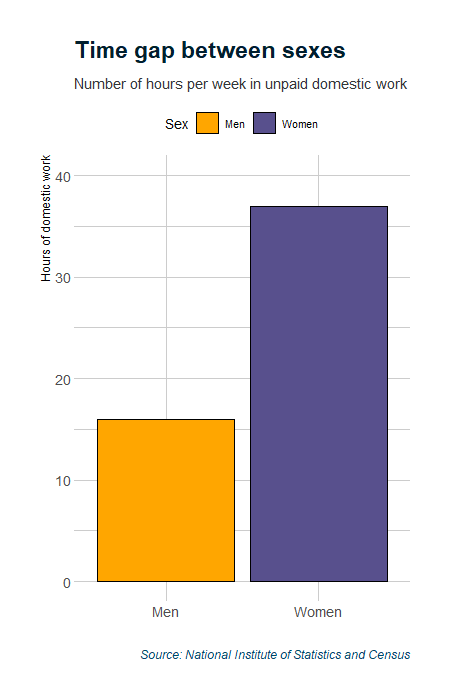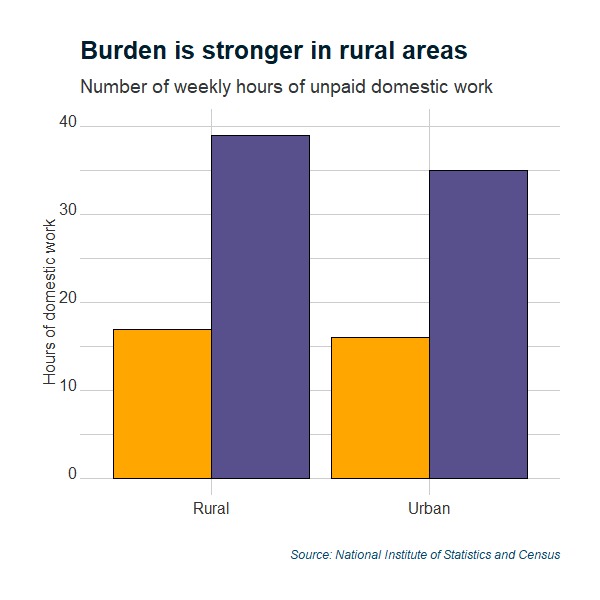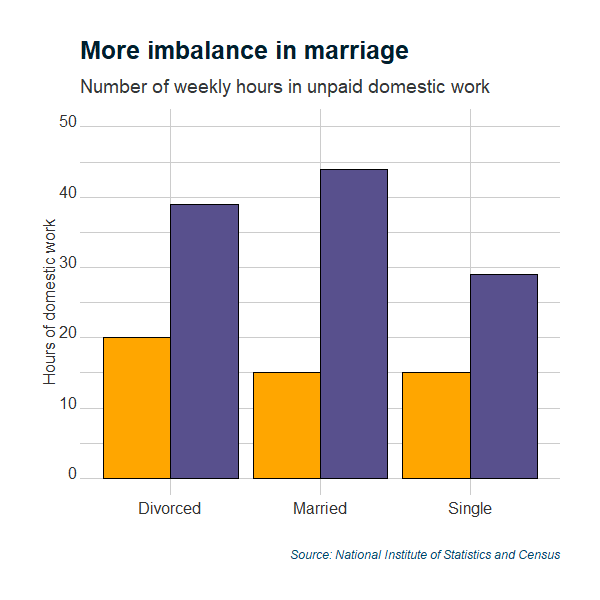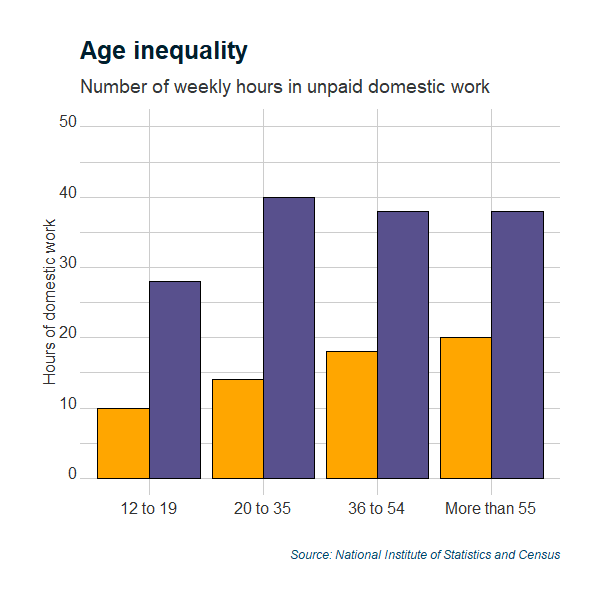How does unpaid work affect women’s lives?
According to the United Nations, the overwhelming burden of domestic tasks denotes a great gender inequality that negatively impacts four essential areas of women’s development:
Less time for learning, leisure, social and political participation, or personal care
0%
More difficulties to get a job outside home
0%
More obstacles to advance in educational and employment careers.
0%
Greater participation in informal work, where they have more control of their time, but without social protection.
0%






